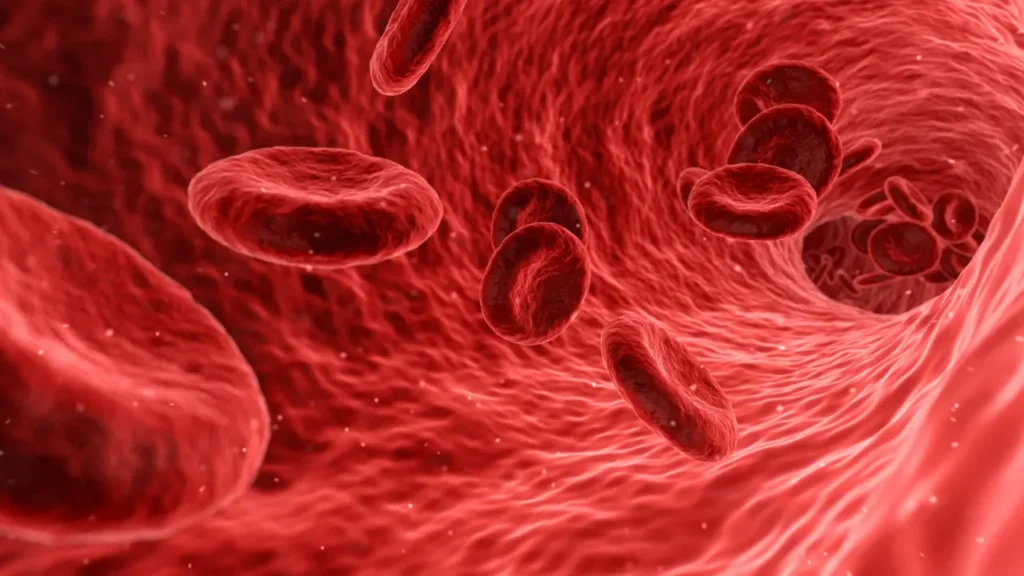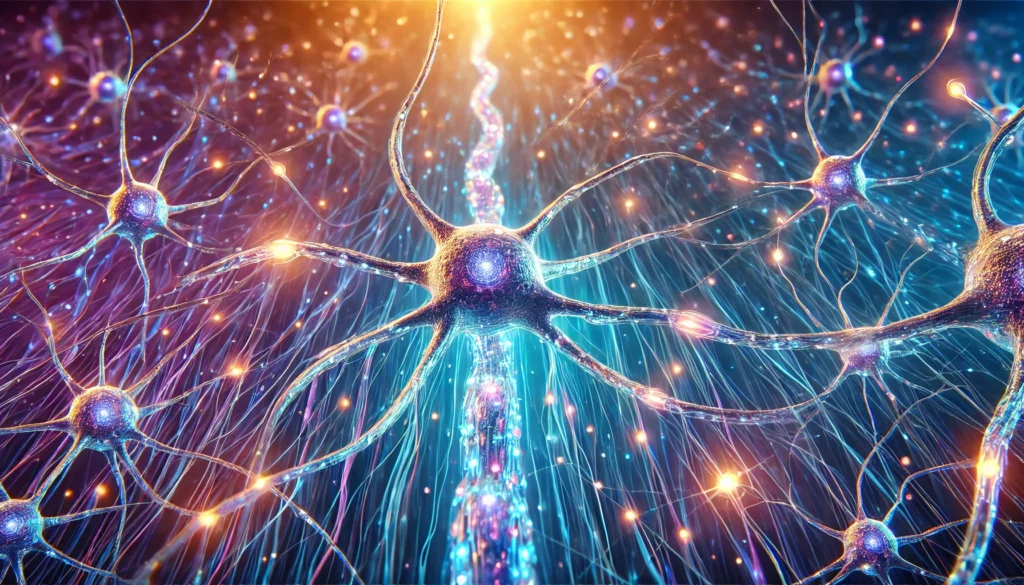Pagoda tree, scientifically known as Sophora japonica, is a flowering tree native to East Asia, particularly China, Japan, and Korea. It is revered not only for its aesthetic appeal but also for its medicinal properties. Traditional medicine has utilized various parts of the pagoda tree, including its flowers, seeds, and bark, for centuries. The interest in pagoda tree as a nootropic supplement is gaining traction due to its unique chemical composition and potential cognitive benefits. This article provides an in-depth examination of the pagoda tree, exploring its chemistry, physiological mechanisms, potential nootropic benefits, dosage guidelines, side effects, drug interactions, and critical considerations for safe supplementation.
You May Also Like:
Pagoda Tree: Potential Nootropic Benefits, Dosage, Side Effects, Interactions, and Other Important Information About This Supplement is an original (NootropicsPlanet) article.
Sources of Pagoda Tree
Pagoda tree is primarily found in its native regions but is also cultivated in other parts of the world for ornamental purposes and traditional medicine. The following parts of the plant are commonly used:
- Flowers: The flowers of Sophora japonica are often used in traditional herbal remedies and are recognized for their antioxidant properties.
- Seeds: Pagoda tree seeds, known for their bioactive compounds, are used in various formulations aimed at promoting cognitive health.
- Bark: The bark contains flavonoids and alkaloids, contributing to its therapeutic potential.
In addition to these traditional uses, pagoda tree extracts are increasingly being incorporated into dietary supplements marketed for cognitive enhancement.
Ashwagandha aids in memory retention and learning—Support Mental Clarity, Buy Today on Amazon!

Chemistry of Pagoda Tree
The pharmacological properties of pagoda tree can be attributed to its rich chemical composition, primarily consisting of flavonoids, alkaloids, and polysaccharides. Notable active compounds include:
- Rutin: A flavonoid glycoside, rutin is known for its antioxidant, anti-inflammatory, and neuroprotective properties. It has been shown to enhance cognitive function by improving blood circulation and reducing oxidative stress in neural tissues.
- Quercetin: Another flavonoid abundant in pagoda tree, quercetin exhibits potent antioxidant effects. It supports neuronal health by mitigating oxidative damage and enhancing synaptic plasticity, which is crucial for learning and memory.
- Sophoridine: An alkaloid found in the seeds, sophoridine possesses sedative and neuroprotective effects, contributing to the overall cognitive benefits associated with pagoda tree supplementation.
These compounds interact synergistically to promote neuroprotection, enhance memory, and improve overall cognitive function, making pagoda tree a compelling candidate for nootropic use.
Physiological Mechanisms of Pagoda Tree in the Body and Brain
Pagoda tree’s potential nootropic benefits stem from its multifaceted mechanisms of action, which include:
- Antioxidant Activity: The flavonoids in pagoda tree, particularly rutin and quercetin, are powerful antioxidants that combat oxidative stress by scavenging free radicals. This protective effect is critical in the brain, where oxidative stress is linked to cognitive decline and neurodegenerative diseases such as Alzheimer’s and Parkinson’s.
- Neuroprotection: The bioactive compounds in pagoda tree help protect neurons from damage caused by neurotoxins and inflammation. Rutin, for instance, has been shown to inhibit apoptosis (programmed cell death) in neurons, preserving cognitive function and memory.
- Enhancement of Blood Circulation: Rutin and other flavonoids are known to improve vascular health by strengthening blood vessel walls and promoting better circulation. Enhanced blood flow to the brain ensures an adequate supply of oxygen and nutrients, supporting cognitive performance and overall brain health.
- Neurotransmitter Regulation: Pagoda tree may influence neurotransmitter systems, particularly those involved in mood regulation and cognitive function. Studies suggest that quercetin can modulate levels of serotonin and dopamine, two neurotransmitters critical for mood, focus, and motivation.

Nootropic Benefits of Pagoda Tree
The potential nootropic benefits of pagoda tree are diverse, stemming from its rich biochemical profile and mechanisms of action. Key benefits include:
- Cognitive Enhancement: By improving blood circulation and providing neuroprotective effects, pagoda tree may enhance cognitive performance, including memory, focus, and learning abilities. Rutin and quercetin contribute to these effects by ensuring optimal neuronal function.
- Neuroprotection Against Cognitive Decline: The antioxidant properties of pagoda tree help shield the brain from oxidative damage, potentially slowing the progression of neurodegenerative diseases. Regular consumption may support long-term cognitive health and delay age-related cognitive decline.
- Mood Stabilization: The influence of pagoda tree on neurotransmitter regulation suggests that it may play a role in mood stabilization. By modulating serotonin and dopamine levels, it could help improve mood and reduce anxiety, further enhancing cognitive performance.
- Anti-inflammatory Effects: Chronic inflammation is linked to cognitive impairment and neurodegenerative diseases. The anti-inflammatory properties of quercetin may help reduce neuroinflammation, contributing to improved cognitive function and overall brain health.

Dosage and Supplementation Guidelines
Determining the appropriate dosage of pagoda tree as a nootropic supplement is crucial for maximizing its benefits while minimizing potential risks. Current research suggests the following guidelines:
- General Nootropic Dosage: For cognitive enhancement, a daily dosage of 200–500 mg of pagoda tree extract, standardized to contain a specific percentage of rutin or quercetin, is commonly recommended. These dosages are generally considered safe and effective for promoting cognitive health.
- Standardization of Extracts: When choosing pagoda tree supplements, it is important to select products that specify the active ingredient concentrations. Standardized extracts containing 95% rutin or quercetin may provide more consistent and reliable effects.
- Forms of Supplementation: Pagoda tree supplements are available in various forms, including capsules, tablets, and powdered extracts. The choice of form should align with personal preferences and ease of use.
- Consultation with Healthcare Professionals: Individuals considering pagoda tree supplementation should consult with a healthcare provider, especially those with pre-existing health conditions or those taking medications. This step ensures safe and effective use tailored to individual health needs.
Side Effects and Safety
Pagoda tree is generally considered safe when used as directed. However, like any supplement, it can cause side effects in some individuals. Possible side effects include:
- Gastrointestinal Distress: Some users may experience mild gastrointestinal issues, including nausea, diarrhea, or stomach cramps, especially at higher doses. Starting with a lower dose and gradually increasing can help minimize these effects.
- Allergic Reactions: Although rare, allergic reactions to pagoda tree supplements may occur. Symptoms can include rashes, itching, or difficulty breathing. Individuals with known allergies to legumes or related plants should exercise caution.
- Headaches: Some users may report headaches, particularly with higher doses. This could be due to the vasodilatory effects of flavonoids, which may alter blood flow patterns.
- Interactions with Medications: Pagoda tree may interact with certain medications, particularly anticoagulants and antiplatelet drugs. The blood-thinning effects of flavonoids could increase the risk of bleeding when taken with these medications. It is essential to consult a healthcare provider before combining pagoda tree with other supplements or medications.
Unlock Brain Health and Mental Resilience with Advanced Bacopa Monnieri—Shop Now on Amazon!

Interactions with Other Supplements and Medications
Understanding the potential interactions of pagoda tree with other substances is crucial for safe supplementation. Key interactions include:
- Anticoagulants and Antiplatelet Medications: Given its potential blood-thinning effects, pagoda tree may enhance the effects of anticoagulant medications such as warfarin or aspirin, increasing the risk of bleeding. Patients on these medications should avoid pagoda tree or consult their healthcare provider for guidance.
- Other Nootropics: Pagoda tree can be combined with other nootropic supplements, such as bacopa monnieri or ginkgo biloba, to enhance cognitive function. However, careful monitoring is recommended to avoid overstimulation or excessive blood-thinning effects.
- Blood Pressure Medications: Pagoda tree may influence blood pressure regulation due to its effects on blood vessel dilation. Individuals on antihypertensive medications should discuss the use of pagoda tree with their healthcare provider to ensure safe use.
Risks for Individuals with Certain Health Conditions
While pagoda tree is generally safe, certain health conditions may warrant caution or contraindication for use:
- Bleeding Disorders: Individuals with bleeding disorders or those at high risk for bleeding should avoid pagoda tree due to its anticoagulant properties, which may exacerbate these conditions.
- Pregnancy and Breastfeeding: Limited research exists regarding the safety of pagoda tree during pregnancy and breastfeeding. Women in these categories should consult healthcare providers before starting supplementation.
- Liver or Kidney Disease: Given that the metabolism of flavonoids occurs in the liver, individuals with liver disease should exercise caution. Similarly, those with compromised kidney function should discuss the use of pagoda tree with a healthcare provider, as the elimination of excess compounds may be impaired.
Conclusion:
Should You Consider Pagoda Tree as a Nootropic?
The pagoda tree’s unique chemical composition, combined with its potential nootropic benefits, positions it as a promising supplement for cognitive enhancement and overall brain health. By improving blood circulation, providing neuroprotection, and modulating neurotransmitter levels, pagoda tree may support cognitive function, memory, and mood. However, while current research is encouraging, further studies are needed to establish definitive nootropic efficacy and safety parameters.
Before considering pagoda tree as a nootropic supplement, individuals should consult with a healthcare professional, especially if they have underlying health conditions or are taking medications that may interact with the supplement. By ensuring informed and cautious use, individuals can explore the potential cognitive benefits of pagoda tree while prioritizing their overall health and safety.

References:
- Oxidative Stress in Alzheimer’s and Parkinson’s Diseases: Insights from the Yeast Saccharomyces cerevisiae. Retrieved from: https://pmc.ncbi.nlm.nih.gov/articles/PMC3371773/
- Unique and interactive effect of anxiety and depressive symptoms on cognitive and brain function in young and older adults. Retrieved from: https://pmc.ncbi.nlm.nih.gov/articles/PMC4222514/
- Oxidative Damage and Cognitive Dysfunction: Antioxidant Treatments to Promote Healthy Brain Aging. Retrieved from: https://pmc.ncbi.nlm.nih.gov/articles/PMC4392815/
- Alzheimer’s and dementia. Retrieved from: https://www.nia.nih.gov/health/alzheimers-and-dementia
- The Impact of Inflammation on Cognitive Function in Older Adults: Implications for Health Care Practice and Research. Retrieved from: https://pmc.ncbi.nlm.nih.gov/articles/PMC3390758/
Important Note: The information contained in this article is for general informational purposes only, and should not be construed as health or medical advice, nor is it intended to diagnose, prevent, treat, or cure any disease or health condition. Before embarking on any diet, fitness regimen, or program of nutritional supplementation, it is advisable to consult your healthcare professional in order to determine its safety and probable efficacy in terms of your individual state of health.
Regarding Nutritional Supplements Or Other Non-Prescription Health Products: If any nutritional supplements or other non-prescription health products are mentioned in the foregoing article, any claims or statements made about them have not been evaluated by the U.S. Food and Drug Administration, and such nutritional supplements or other health products are not intended to diagnose, treat, cure, or prevent any disease.


